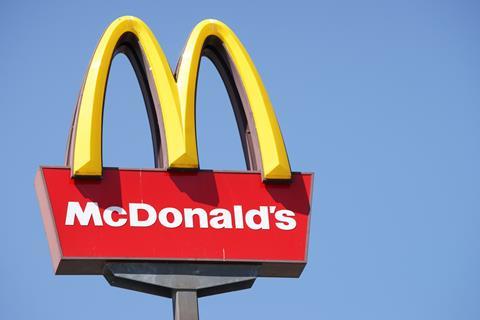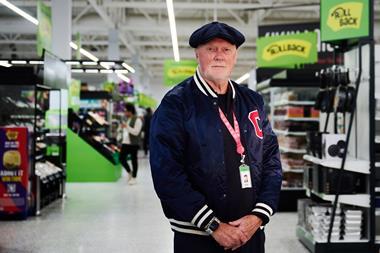
McDonald’s UK is receiving weekly sexual harassment claims following a BBC investigation that exposed a culture of assault, racism and bullying at the fast food chain, its boss admitted.
Alistair Macrow told ministers at a Business and Trade Committee on Tuesday that McDonald’s had received more than 400 complaints from workers since July, when the investigation’s findings first came to light.
Workers as young as 17 spoke out about a toxic culture at the chain, where complaints of sexual assault, harassment, racism and bullying were not taken seriously.
Macrow said McDonald’s, which has around 1,450 outlets in the UK and Ireland, employing almost 180,000 people, was doing everything it could to “identify individuals who are responsible” and ”eradicate” them from the business.
Seven testimonies from a group of whistleblowers were published by MPs ahead of the committee meeting. One victim said she was “appalled” by the lack of seriousness that her harassment allegations were met with at McDonald’s.
Another, who was 16 when first hired, said an older manager made them “extremely uncomfortable” with sexually-charged comments that were “passed off as banter”.
A third one said “drugs, homophobia, racism and sexism from management and staff members who have worked there for years is so normal that nobody actually sees it as an issue anymore”.
Most complained of mismanagement and a lack of action from the company in the face of such complaints.
Macrow told MPs that whistleblowers’ stories of sexual harassment and bullying at the company’s fast food outlets were “truly horrific” and that hearing their testimony had been “very difficult”.
“The cases are absolutely horrendous,” the CEO told the Commons committee, adding: “I’m a father [of] an 18-year-old myself, and I can truly understand how anybody would feel if their child was to be subjected to any of these things that we’ve heard about here today.
“What I’d like to be clear about is that we will tackle them and make sure we do everything we can to eradicate them from the business. Nothing is more important,” he said.
Eighteen people have been fired since Macrow set up a special investigations unit following the BBC’s revelations in July.
Of the 157 complaints that have been investigated, 17 were cases of sexual harassment, while nine were related to bullying and one was about racial harassment.
There were another 27 outstanding cases of sexual harassment still under investigation.
“To give you a picture of what we see on an ongoing basis, we typically would see between 20 to 25 contacts per week, of which one or two would be sexual harassment,” he added.
Of the 407 complaints of “all types”, 75 had led to disciplinary action, he said.
There were also no particular hotspots in the country where abuse cases were taking place – “there is a wide distribution” of where they have occurred, Macrow said.
📺 You can watch our session live here: https://t.co/w7jl1aByP0
— Business and Trade Committee (@CommonsBTC) November 14, 2023
According to the head of the Bakers, Food & Allied Workers’ Union, employees at McDonald’s have made complaints “in every shop” across London.
Ian Hodson, the national president of the union, said it had received 1,000 complaints of workers for whom incidents of groping, inappropriate language and treatment were “common”.
“It was normal, which obviously it shouldn’t be,” Hodson told the committee. “In the 21st century, in the UK, it shouldn’t happen.”
He added: “When a global corporation, [one of the] biggest employers in the world that makes billions and billions of pounds, can’t protect its workforce, it’s awful. It should be leading and be an example for others – but it is not.”
McDonald’s is not only one of the largest private employers in the UK, it also has one of the youngest workforces, with three-quarters of staff aged 16 to 25.
However, most workers are not directly employed by the company because the majority of outlets (89%) are run by individual franchise operators who employ the staff.
Macrow said no franchisees had yet lost their contracts in relation to the complaints.
When asked by the Business and Trade Committee chair, Liam Byrne, if “profit was more important than protecting workers”, Macrow said that was “absolutely not the case”.
“The most important thing in our business is our people. We do everything we can to look after our people.”
Law firm Leigh Day launched a lawsuit against McDonald’s last week on behalf of a group of workers. The fast food chain has also appointed external experts at PwC to investigate its employment and disciplinary procedures.
Macrow said he was “personally committed to ensuring all cases brought to our attention are investigated quickly and thoroughly”.
“Where our standards have been breached, or where our processes fall short, I will drive change.”



















No comments yet